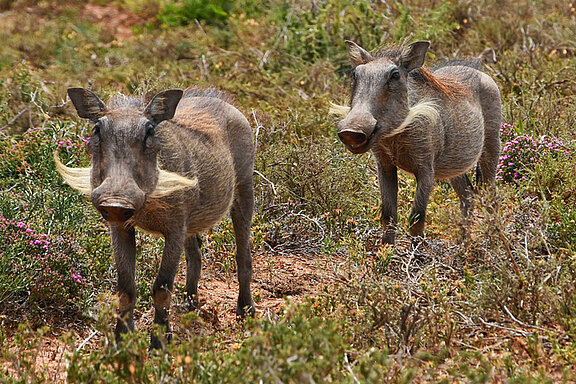African swine fever (ASF) is one of the most complex viral diseases of domestic and wild pigs, with enormous socio-economic and ecological consequences. Domestic pigs, European wild boar and endangered pig species become severely ill and usually die from the disease. In contrast, African warthogs and brush-eared pigs, the original hosts of ASF, do not become ill when infected. An EU-funded research project (ASF-RASH: "African Swine Fever pathogenesis and immune responses in Resistant And Susceptible Hosts") is investigating the factors involved in several susceptible pig species.
As part of the project network led by the Friedrich Loeffler Institute (FLI), the FLI is now starting a study with four warthogs provided by German zoos. A study with brush-eared pigs from zoos has already been carried out as part of ASF-RASH and the results are currently being analysed.
Project partners for the zoo animals are the IUCN SSC Wild Pig Specialist Group, the European Association of Zoo and Wildlife Veterinarians (EAZWV) and the Tapir and Suiform Taxon Advisory Group of the European Association of Zoos and Aquaria (EAZA).
The results of the study should provide information on how the pathogen, host species and immune cell factors responsible for susceptibility and protection are related. These findings will be invaluable in the development and optimisation of vaccines, as there is currently no reliable vaccine available. An oral vaccine would also contribute to the protection of endangered pig species.


